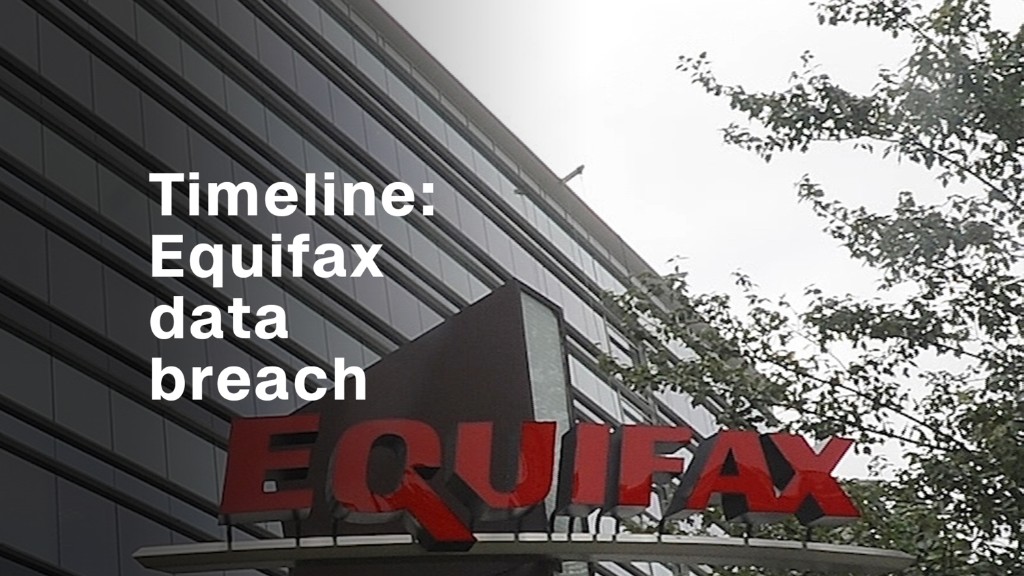
Still haven't signed up for Equifax's free credit freeze? You just got a second chance.
After disclosing a massive data breach last year, Equifax said it would waive the fee for credit freezes through January 31. But as the deadline approached this week, the company extended it to June 30.
Personal information for 145.5 million people was exposed during the breach, including names, Social Security numbers, birth dates, addresses, and some driver's license numbers. In addition, 209,000 credit card numbers were exposed.
That kind of information could be used by criminals to open bank accounts, credit cards, or loans in your name -- without you knowing.
But putting a freeze on your credit reports can help prevent that from happening.
Related: Why Equifax will continue to profit by selling your information
Equifax has offered credit freezes to everyone for free, whether or not they were affected by the breach. Usually, there is a fee to freeze your credit, ranging from $2 to $10, depending on what state you live in.
Once you've frozen your credit, you'll have to authorize the freeze to be temporarily lifted when you want to open a new line of credit yourself. In some states, you could be charged a fee for lifting the freeze, too.
Equifax has waived any fees for placing, temporarily lifting, and permanently removing credit freezes through June 30.
But freezing your Equifax credit report could still leave you vulnerable to identity theft, experts say. You'd also need to separately freeze your credit reports at the other two credit bureaus -- Experian and TransUnion. Those may still carry a fee.
"Getting credit freezes at all three national credit bureaus is the best action consumers can take after the Equifax breach, whether they were affected by it or not," said Mike Litt, Consumer Campaign Director with U.S. PIRG.
Related: A cybercriminal's guide to protecting your identity
In the wake of the breach, Equifax also waived the charge for one year of its credit monitoring service, TrustedID Premier. That offer still expires on January 31, an Equifax spokeswoman said.
TrustedID Premier will monitor your credit reports at all three credit bureaus and alert you to changes. It also provides you with free copies of your Equifax credit report, monitoring of the dark web for your Social Security number, $1 million in identity theft insurance, and the ability to "lock" and "unlock" your Equifax credit report.
Facing public outcry last year, Equifax also promised to create a new way to lock your credit report -- that would be free for life.
That product, called Lock & Alert, was made available January 31.
Related: What is a credit freeze and should I do it?
Locks are similar to freezes. They both block access to your credit report, but the way you lift the restriction is slightly different.
Consumers must call the credit bureau or go online and use a PIN to lift a freeze. This is regulated by state laws, which usually dictate how fast a company has to place or lift the freeze and how much they can charge for it.
Locks are not regulated by state laws. But Equifax has said that its new product will "quickly" allow consumers to lock or unlock their credit report using a user name and password, instead of PIN. You can do so online or by downloading Equifax's Lock & Alert app to a mobile device.
The terms of use agreement does not include an arbitration clause, and states that your ability to lock and unlock your Equifax credit report for free will not change.
But if you currently have a freeze on your Equifax credit report, you will have to remove it before using the new Lock & Alert product, the website said.



